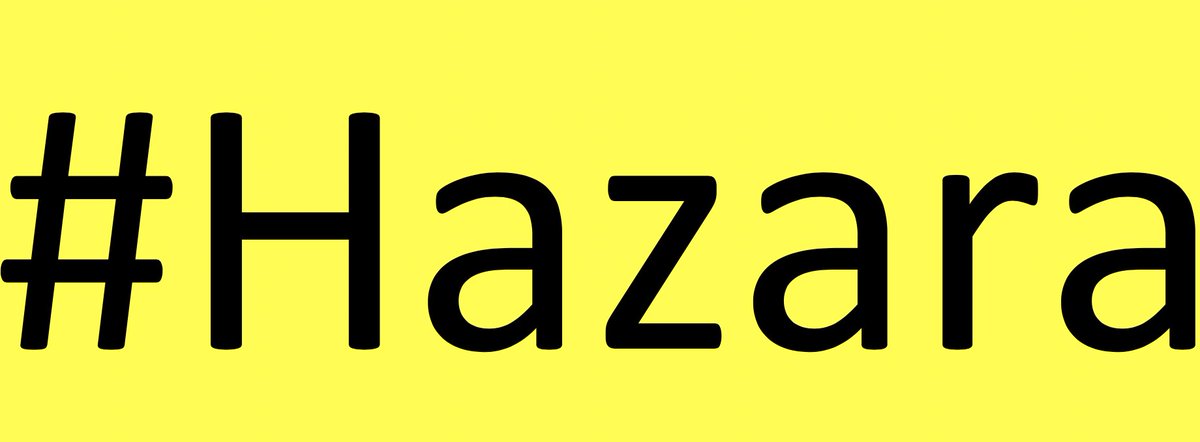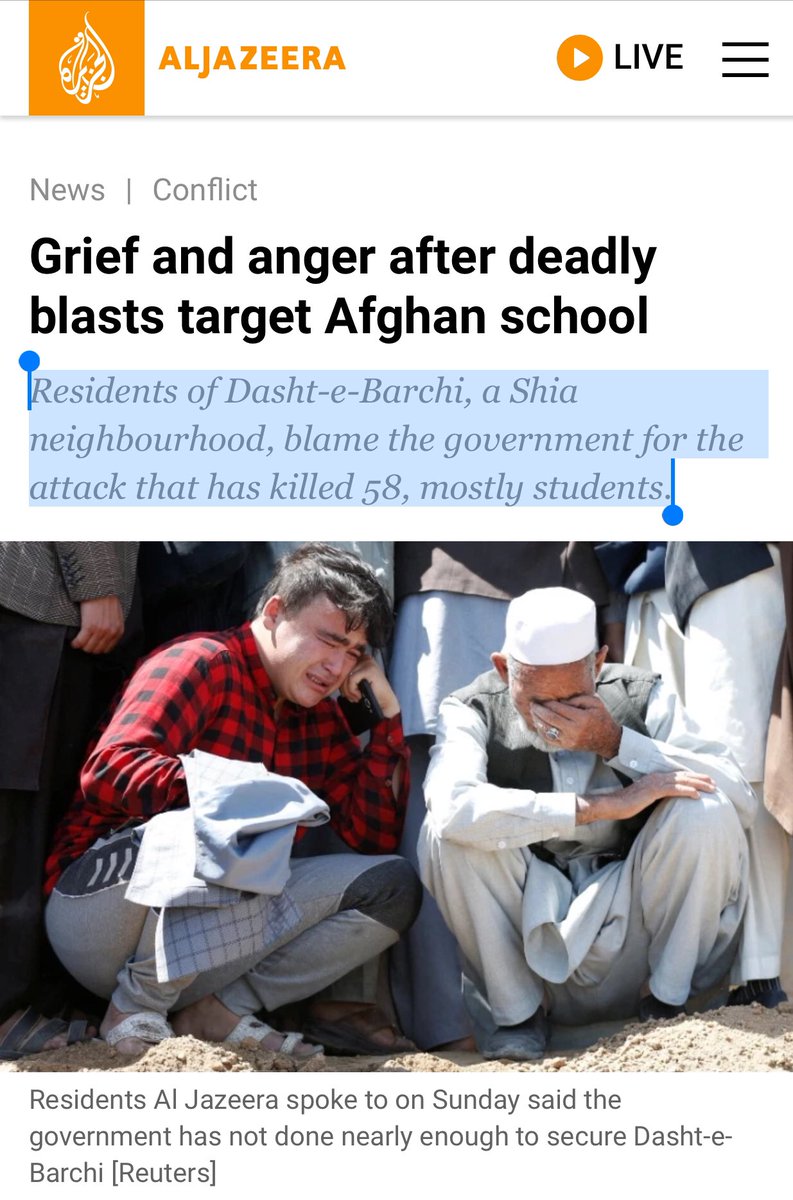1. The “H” word
Why are journalists and the media so terrified of using the word #Hazara in their reporting? After every genocidal attack against the #Hazaras in both #Afghanistan and #Pakistan, the media both inside and outside the countries flinch from using the word #Hazara.
Why are journalists and the media so terrified of using the word #Hazara in their reporting? After every genocidal attack against the #Hazaras in both #Afghanistan and #Pakistan, the media both inside and outside the countries flinch from using the word #Hazara.
2. These journalists and/or publishers take great pains to eschew the “H” word instead replacing it with #Afghan, #Shia, #Pakistani #Dasht-e Barchi #Kabul, #Quetta #students #girls and other such indistinct and obscure classifications and categories.
3. Although the naming of the victim’s ethnicity, which in the case of the #Hazaras is the primary factor behind their killing, should be of prime importance to the news story, yet it is calculatedly shunned by the majority of journalists.
4. Rather than mentioning the victim’s ethnicity in the headline and lead, journalists and/or news outlets either entirely eschew mentioning their ethnicity or make a passing remark and burry it to the bottom section of the article.
5. The #Hazara people have made it very clear as to how they want to be identified in news headlines. For example in 2018, the Hazara community pleaded international news outlets to use the H word and call them by their ethnicity.
6. See petition here: https://www.change.org/p/washington-post-cnn-bbc-i-want-to-be-called-hazara-not-shia?use_react=false">https://www.change.org/p/washing...
7. Although mentioning the city and country where the attack took place, the victim’s (often assumed) religion, gender, or occupation are important information in detailing the news stories, this should never be at the cost of entirely shunning or relegating their ethnicity.

 Read on Twitter
Read on Twitter



